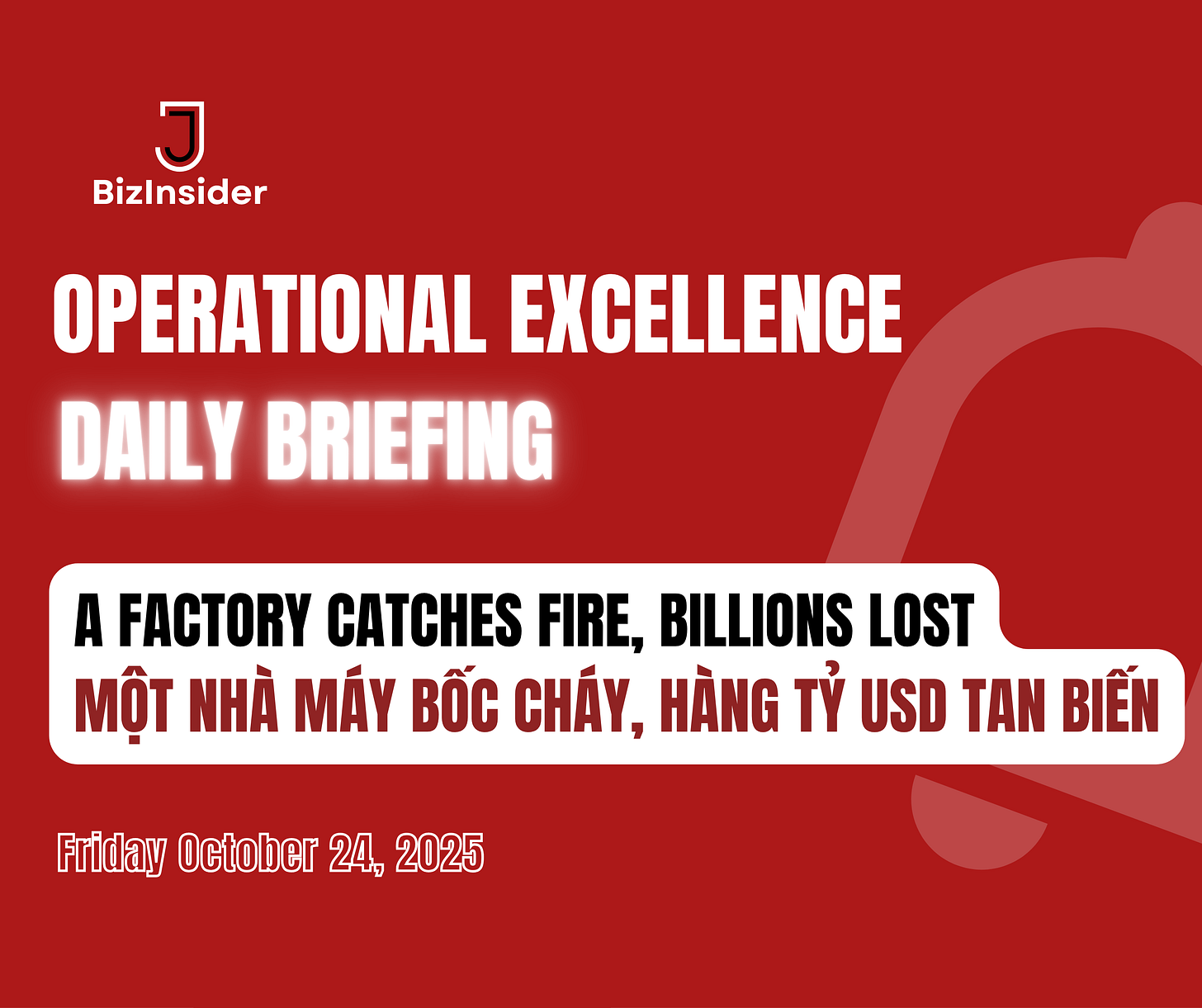Operational Excellence (OPEX) Daily Briefing – Friday, October 24, 2025: A Factory Catches Fire, Billions Lost: An OPEX Lesson from Ford on a Fragile Supply Chain
Điểm Tin Operational Excellence (OPEX) Mỗi Ngày – Thứ Sáu, Ngày 24/10/2025: Một Nhà Máy Bốc Cháy, Hàng Tỷ USD Tan Biến: Bài Học OPEX Từ Ford Về Chuỗi Cung Ứng Mong Manh
Welcome to my unique weekday article for the paid subscriber-only edition.
Operational Excellence (OPEX) Daily Briefing – issued on weekdays (Monday to Friday).
Điểm tin Operational Excellence (OPEX) hằng ngày (phát hành các ngày thứ Hai đến thứ Sáu).
This is the bilingual post in English and Vietnamese. Vietnamese is below.
Đây là bài viết song ngữ Anh-Việt. Tiếng Việt ở bên dưới.
English
Part 1: Official Statement – When One Factory Burns, the Whole Chain Breaks
On October 24, 2025, Ford Motor Company was forced to partially suspend production at its Michigan plant after an aluminum factory owned by Novelis — Ford’s primary supplier — caught fire, causing a severe disruption in the supply of raw materials. According to Reuters and Bloomberg, the blaze at Novelis’s Kentucky facility crippled the aluminum supply network used for Ford’s F-Series pickup trucks — a product line that accounts for more than 40% of Ford’s global profits.
What initially seemed like “an isolated factory incident” quickly escalated into a shockwave across the global supply chain. Within 48 hours, Ford reported hundreds of millions of dollars in losses due to production halts, dozens of dependent suppliers faced cascading disruptions, and dealerships began running out of inventory.
Experts from the Automotive Supply Chain Council identified this as a textbook case of Cascading Operational Risk — where a single point of failure in a tightly connected network can paralyze an entire production system.
Crucially, Ford is not alone in facing this type of risk.
Since 2023, incidents such as fires, natural disasters, and cyberattacks targeting critical suppliers have forced numerous global corporations — from Toyota to Apple — to temporarily suspend production. Analysts refer to this era as the “Age of Digital Fragility,” in which the acceleration of automation and data dependence is outpacing organizations’ ability to manage operational risk.
A senior analyst at the MIT Center for Transportation & Logistics remarked:
“As global supply chains become hyper-efficient, even a small local disruption can ripple through the entire system within hours. What companies need is not just a reaction plan — but Digital Resilience, the ability of their systems to self-adjust before a crisis unfolds.”
The Ford–Novelis incident serves as a powerful reminder that in the digital age of globalization, operations no longer exist solely within factories or warehouses. They form an interconnected web of data, people, and processes, where one broken link can destabilize the entire value chain.
Thus, the critical question for modern leaders is no longer “How do we prevent risks?”
but rather:
“How can our system recover — even when part of our chain is burning?”
And that is precisely why Operational Excellence (OPEX) today is not just about performance — it is about Intelligent Resilience: the strategic capability to predict, absorb, and adapt to disruption, the ultimate foundation for survival in the uncertain era of global supply chains.



